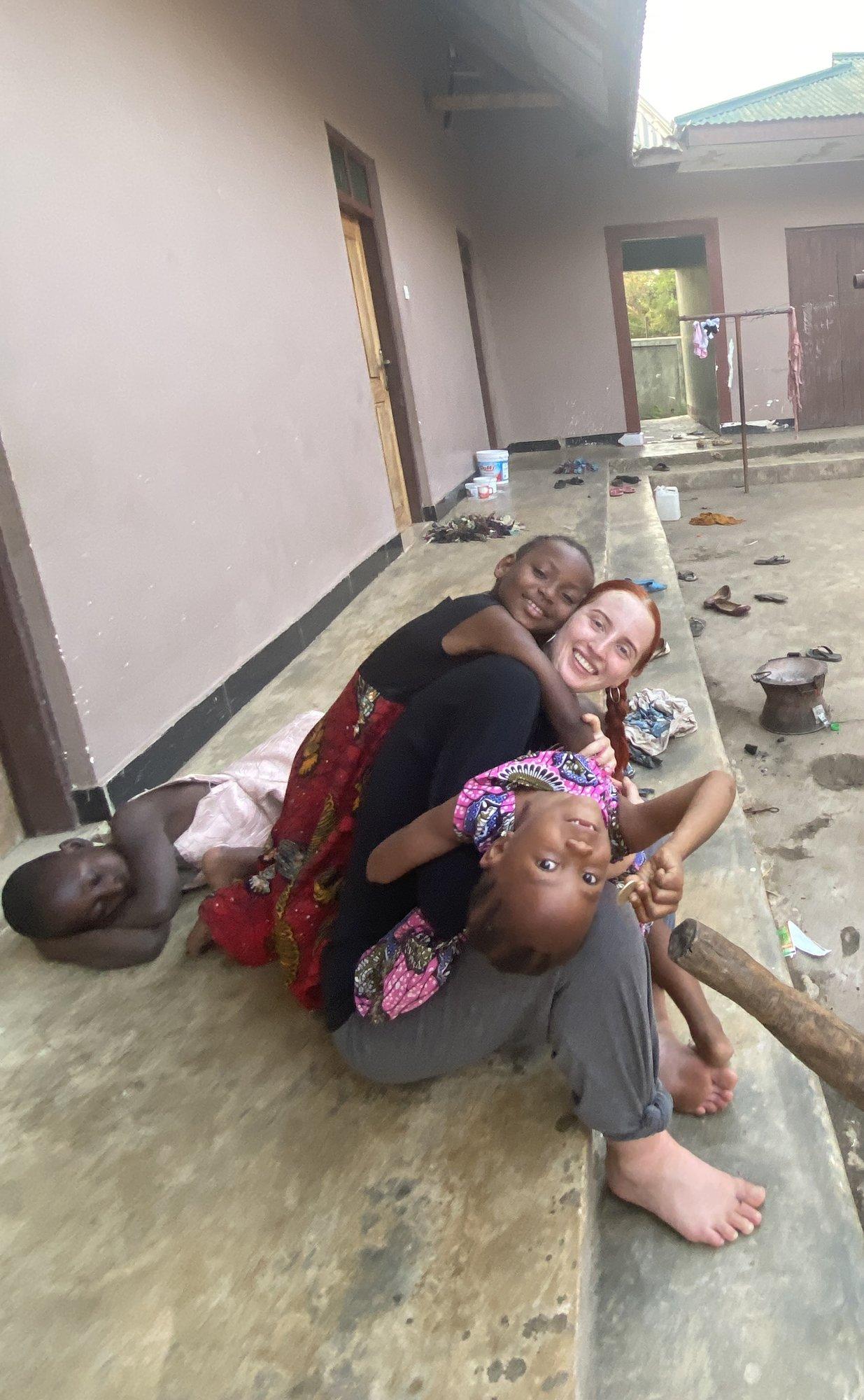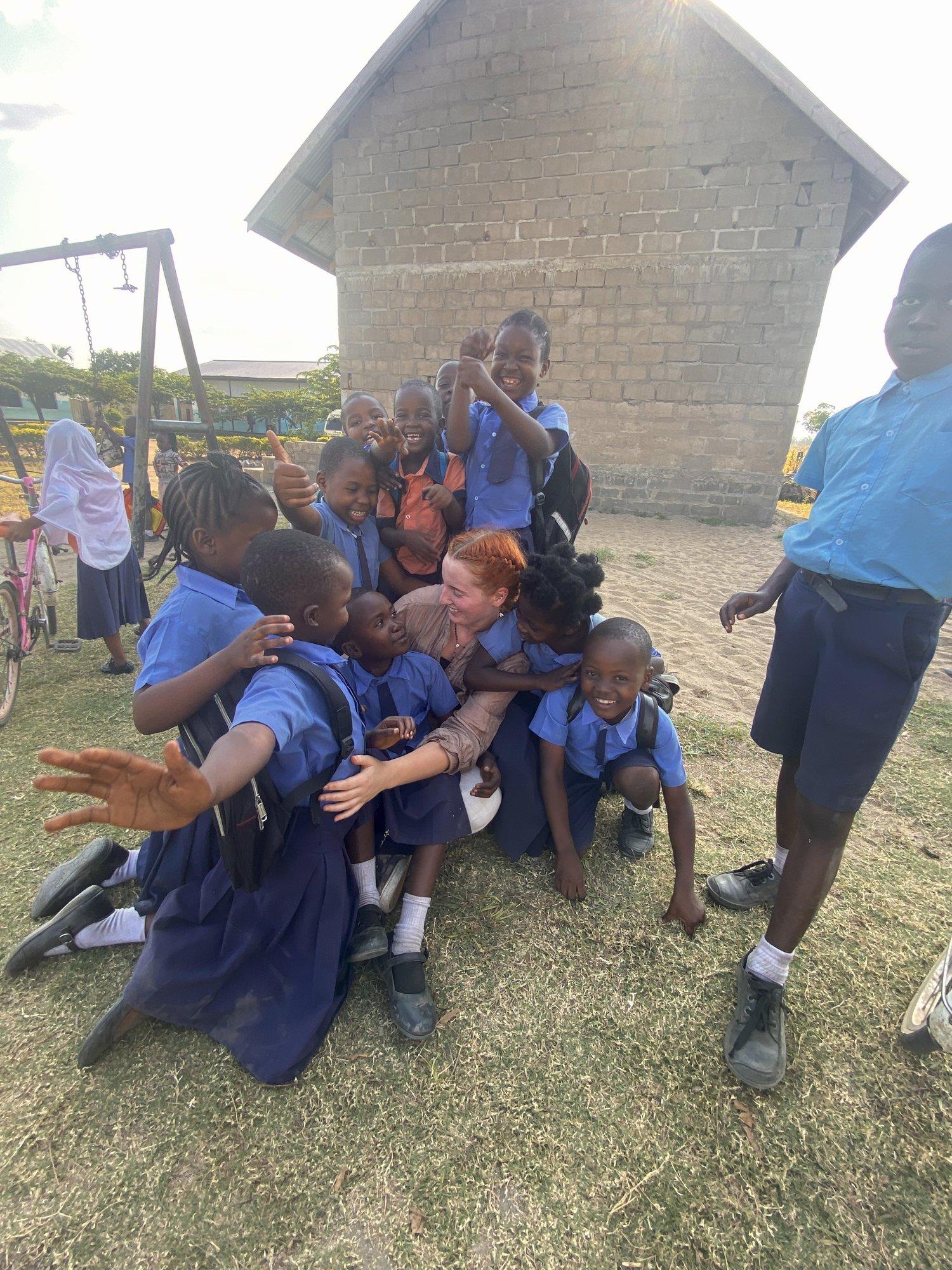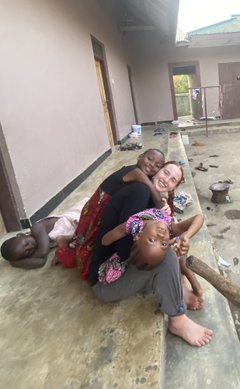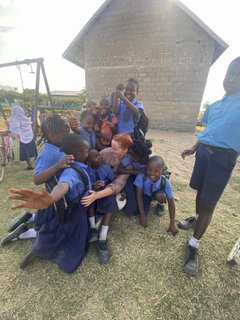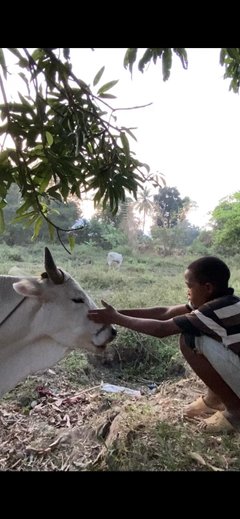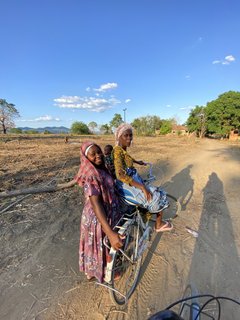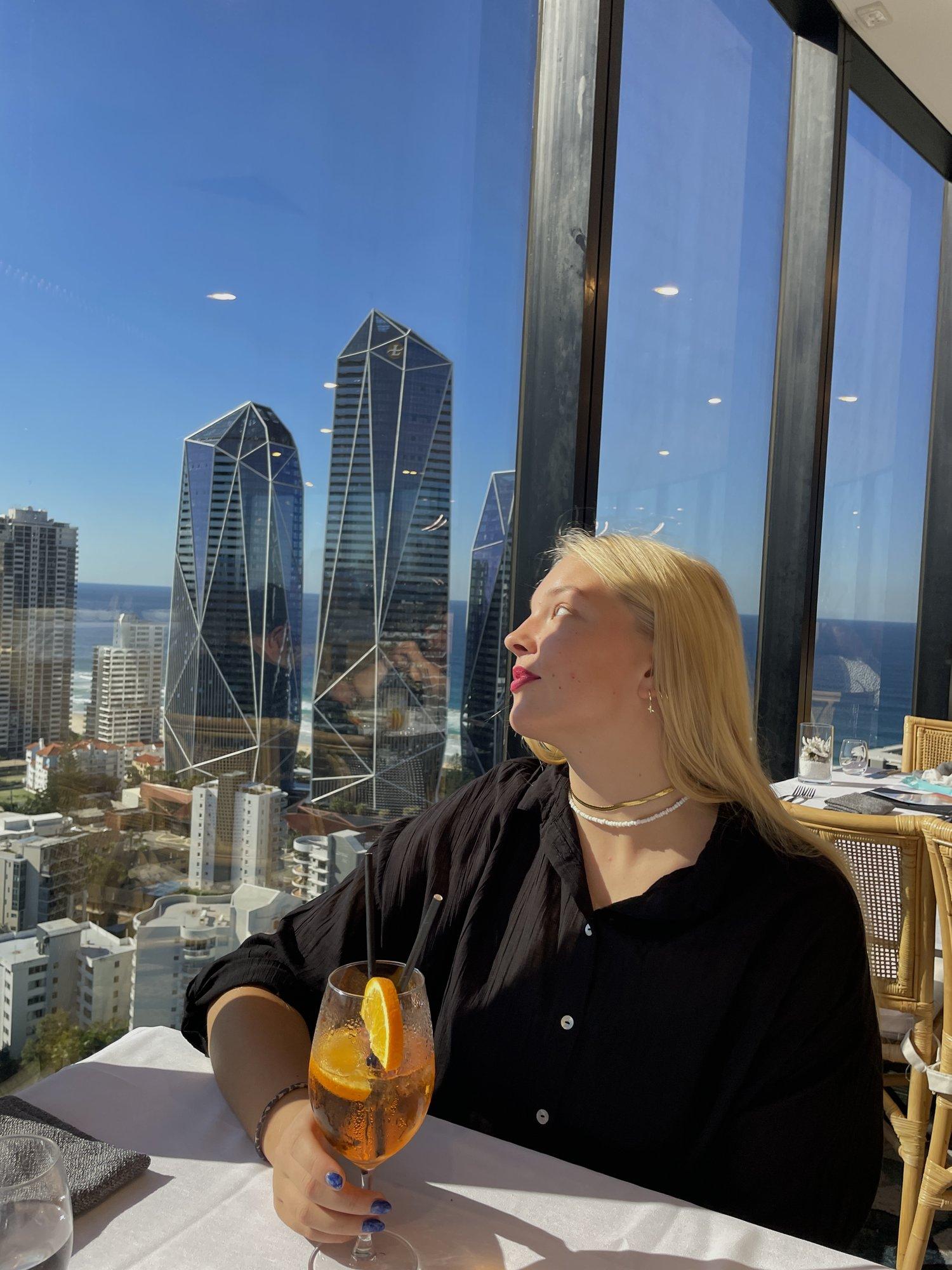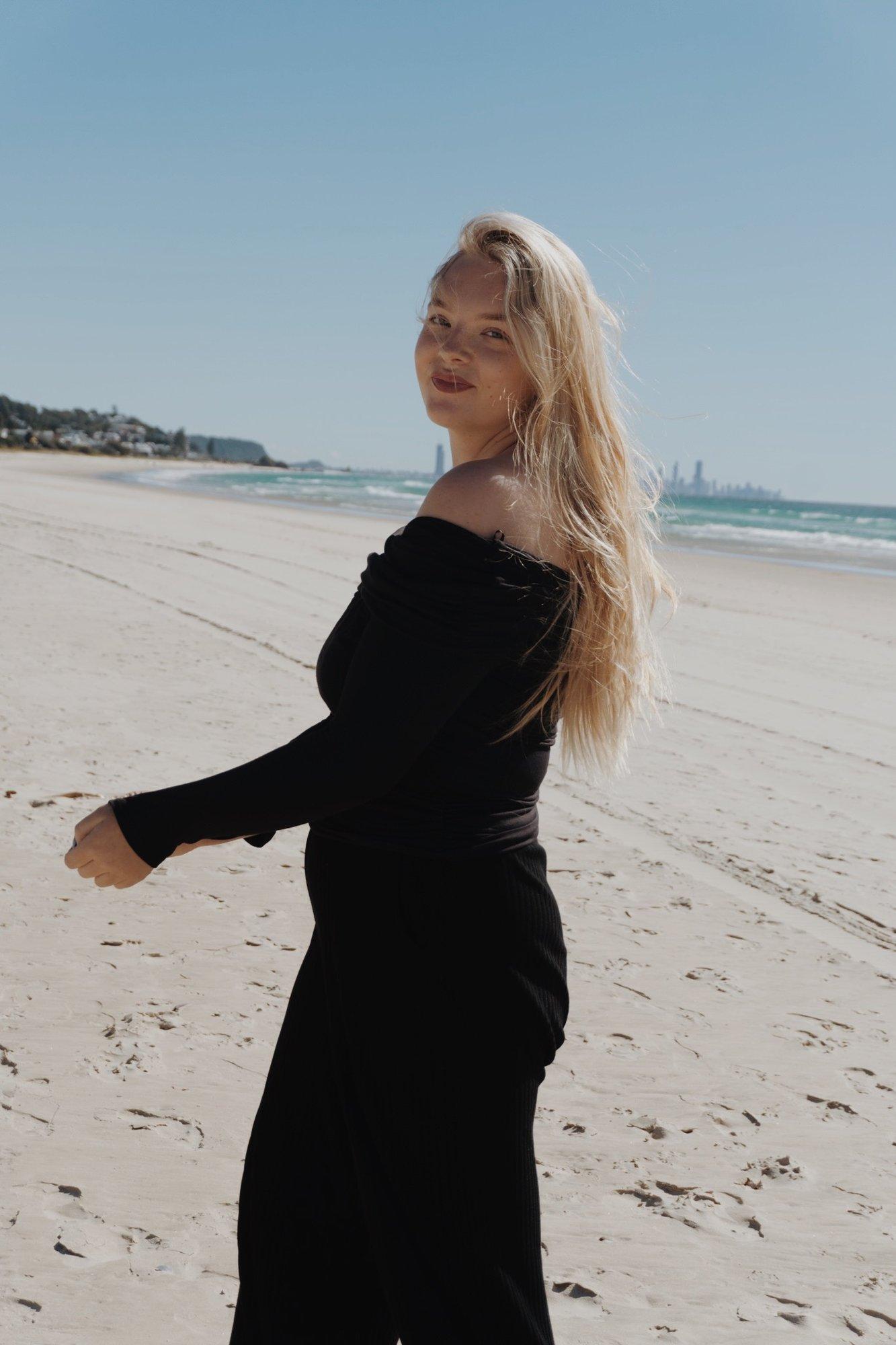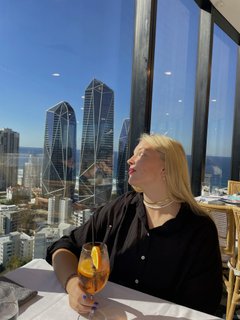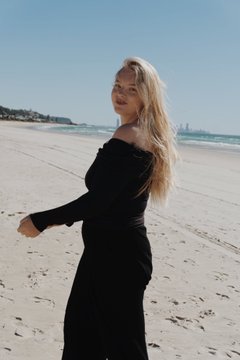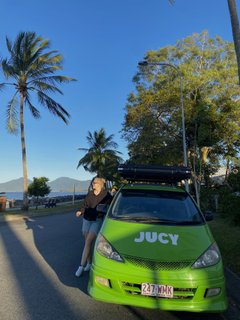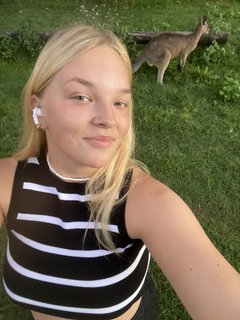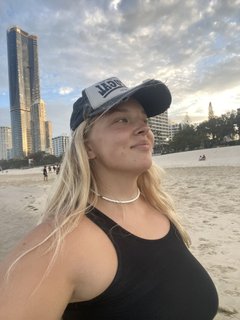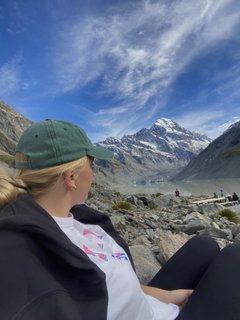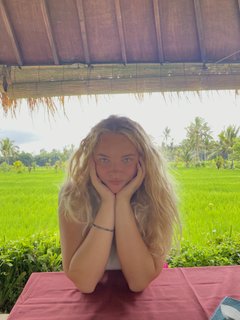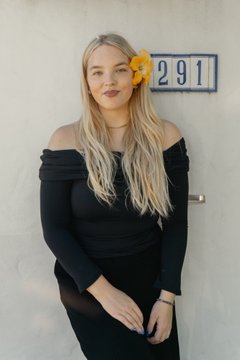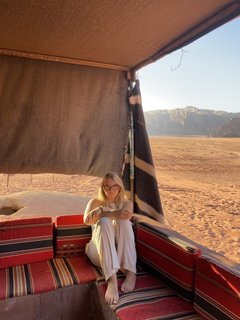These programmes provide young Europeans not only the opportunity to travel for free or with minimal financial resources, to experience new cultures but also to gain skills, and acquire valuable work experience.
Ona: Travelling Gives You the Freedom to Live
Ona is just 20 years, but she has already volunteered in Tanzania, worked in Utah, visited England, Turkey, Norway, Austria, Greece, and other countries. At the age of 18, she spent three months volunteering at a school in Tanzania.
"I lived with the local people, participated in their daily activities, travelled, cooked with them. I became a part of the community. This experience was unique, it allowed me to experience a lot, to learn a lot. Tanzania is completely different from Lithuania," she says.
However, Ona also recalls the fear she felt before the trip, because she was going to Africa all alone.
"I had many intrusive thoughts, had to overcome my fears (...). The second biggest challenge was to adapt to a new environment. And my adaptation started with food poisoning. I really wanted to be like the local kids, running barefoot at school, playing football and drinking tap water. However, my stomach was not ready for such a challenge, and I ended up being one out of the 70 people who drank the same water and had to go to the hospital," she remembers.
According to Ona, only the best memories remain, and the trip has left her with lasting impressions. She now lives in Utah, across the Atlantic, where she works as a boat instructor.
"Every corner of the world is beautiful in its own unique way, and Utah is no exception. The orange mountains, lack of greenery, combined with living in the middle of nowhere, not only amaze me but also stimulate my creativity. There is is no city life, amusement parks, or Wallmarts here, but having less urges me seek genuine happiness," she says.
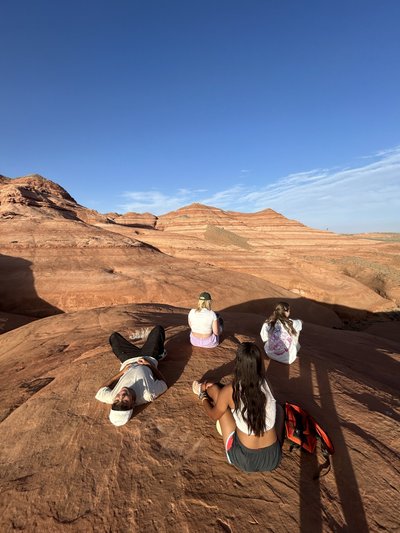
When asked why she not limited herself to exploring Europe but also other parts of the world, Ona gives a simple answer.
"It was probably my mother who first taught me the importance of travel, and then my friends reinforced it. Finally, once I let go of all my fears, my dreams became a reality," Ona explains.
When you start considering travel, she says, the first concern that comes to mind is your finances. However, Ona assures that travelling itself brings her financial freedom, as well as the freedom to live.
"When working abroad, I spend one-fifth of my time travelling, 70% working, and the rest resting. However, the limited time also makes travelling feel like a reality show, (...) you are not a tourist but a real traveller," she says.
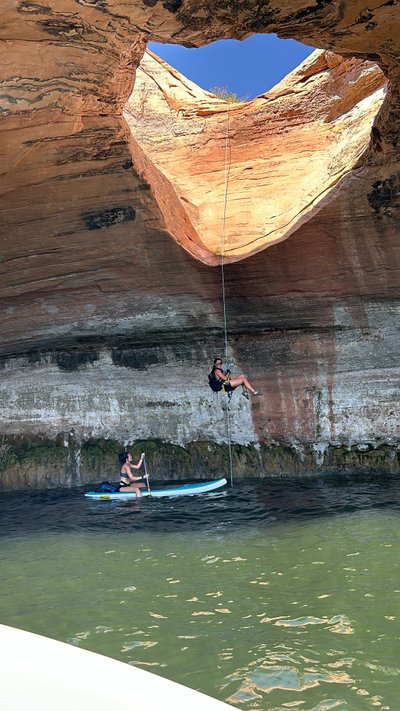
Ona also notes that the programme for youth "Erasmus+" and volunteering project "Worldpackers" have given her the most travel opportunities. Although, she usually plans het travels herself - flights, accommodation, work, and other activities - these programmes offer reassurance about what to expect.
"On these trips, you do not have to look for adventures, they simply find you", she says.
Meda Organised her First Trip for Herself and Her Mother When She Was Just 14
19-year-old traveller Meda Spiridovičiūtė, known on social media as the Frog the Traveller, has visited more than 30 countries. Her first trip, organised when she was only 14, was to Paris with her mother.
"My mother and I went to Paris. I found cheap flight tickets and affordable accommodation. We planned everything ourselves. It was an amazing trip. After that, I realised I wanted to travel more, so, at 15, I flew to the Netherlands during summer holidays to work. I spent the whole summer transporting food on my bicycle, that is how I earned some money for other trips. Since then, I have travelled to more than 30 countries," recalls Meda Frog the Traveller.
Meda, who lives and studies in Australia, advises young people who think they need a lot of money to travel to explore the free travel opportunities offered by the EU.
"There are various projects, internships, exchanges, volunteer programmes. Usually, the EU funding covers both accommodation and travel expenses. The programmes offered by the EU have helped me to explore many foreign countries," she says.
And for those who prefer to travel independently, Meda offers an important advice – do not plan your trip during peak season: "Not only will you save money, but you will also avoid the tourist crowds. Also, countries like Spain or Italy are more enjoyable outside of summer. It’s just too hot there during that season".
Meda also recommends certain apps that may help save money on accommodation flights: "Last year, I organised a budget-friendly trip to Jordan and Israel. I spent 200 euros on flights, accommodation, food, and various desert tours. My next trips are to the Philippines and Thailand".
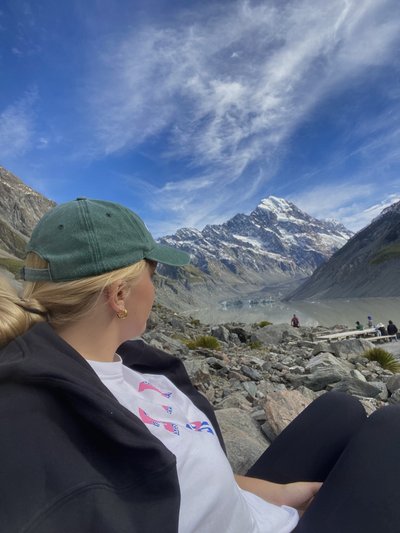
EU Youth Programmes
The EU offers a wide range of programmes giving young Europeans opportunities not only to travel, explore new countries and cultures, but also gain work experience, and try volunteering.
"Erasmus+" provides young people with opportunity to spend several months in a foreign country of their choice. University students can get financial and organisational support to complete part of their studies or find an internship abroad. „Erasmus+" helps not only university students, but also school pupils, who can collaborate with schools or organisations in other countries. Since 1987, over 10 million young people have taken part in „Erasmus+".
The European Solidarity Corps programme offers young people the chance to engage in community-building initiatives at home or do some volunteering abroad. Participants aged between 18 and 30 (up to 35 for humanitarian activities) either through volunteering or through an internship can take part in solidarity activities ranging from biodiversity conservation to supporting vulnerable groups. It can be a great way to get to know a new country, gain valuable skills, and work experience, meet new people. Participants also receive financial support, get language learning opportunities, and can engage in online training courses. A group of young people can also apply directly to develop and implement independent projects addressing a certain community issue, lasting from two to 12 months.
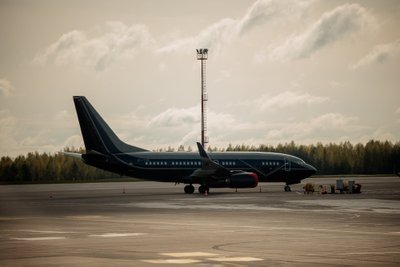
The programme "DiscoverEU" offers free travel tickets for EU citizens aged 18 on the Interrail European rail system.
The "European Youth Week" is usually held in spring. This programme serves as a platform to discuss youth-related topics, introduce opportunities for young people, and celebrate their achievements.
It can be difficult for young people to find their way in life; crises such as the COVID-19 pandemic disproportionately affect young people’s opportunities. The "Youth Guarantee" programme aims at helping young people (up to the age of 29) to find quality employment, further studies, traineeships, or apprenticeships within four months of completing formal education or becoming unemployed. Support for young people is tailored individually so that specific aptitudes and capabilities of a certain individual are taken into consideration. The initiative has been running since 2014.
If you are dreaming of an international career, the EU institutions is a good starting position. Most of them offer traineeship opportunities for university graduates. The EU offers traineeships in fields, from agriculture to cybersecurity.
"Your First EURES Job" is a small-scale EU job mobility programme aimed at helping young people aged 18-35 from EU countries, Iceland, and Norway find jobs or traineeships in other countries.
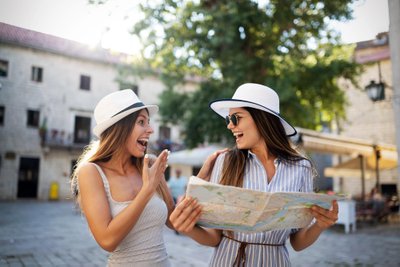
Tips On How to Travel on a Budget
The EU’s European Youth Portal, enabling young people to participate in a wide range of international activities, offers guidance on how to travel independently and affordably.
Prepare in Advance. Plan your route in detail to minimise surprises. Book in advance and consider sharing costs if travelling with others.
Explore. Choose destinations that are less popular with tourists and look for cheaper options. Travelling during the off-season can also save money and avoid crowds.
Track Your Expenses. Make sure you stay within your budget. Keep a record of your expenses in a notebook or an app so you can track how much you have to spend and see if you can stick to your plan.
Travel Economically. Where possible, go green with rented electric scooters, bicycles, or public transport. Wear comfortable shoes for exploring on foot.
Book Your Accommodation Wisely. Look for affordable youth hostels that offer free meals, such as breakfast, lunch or both. If you are travelling with a group, it might be worth booking a shared room.

